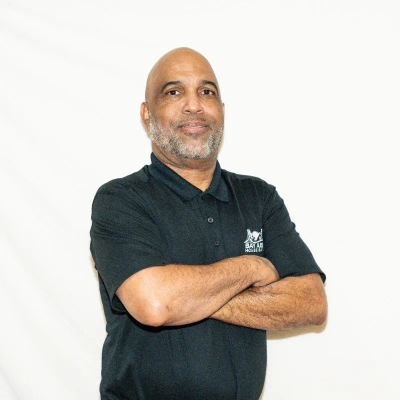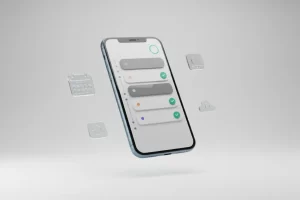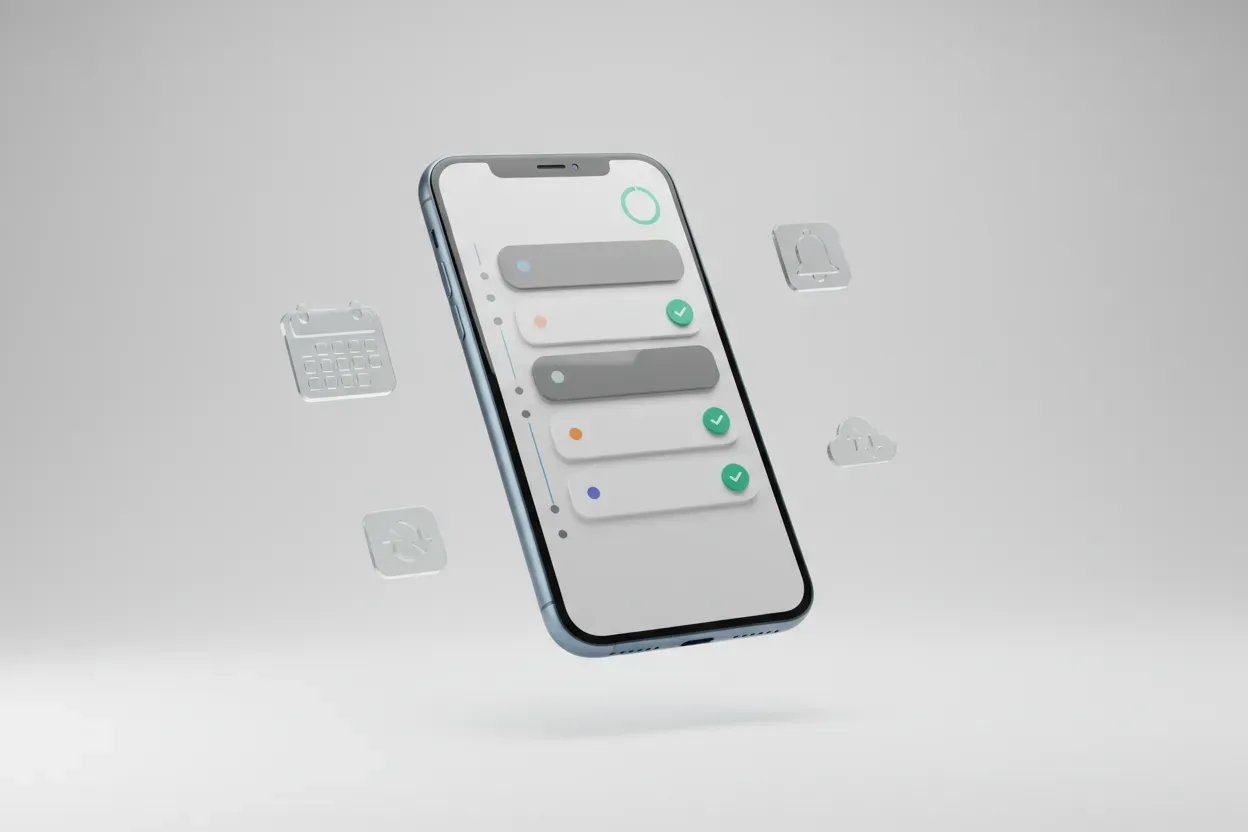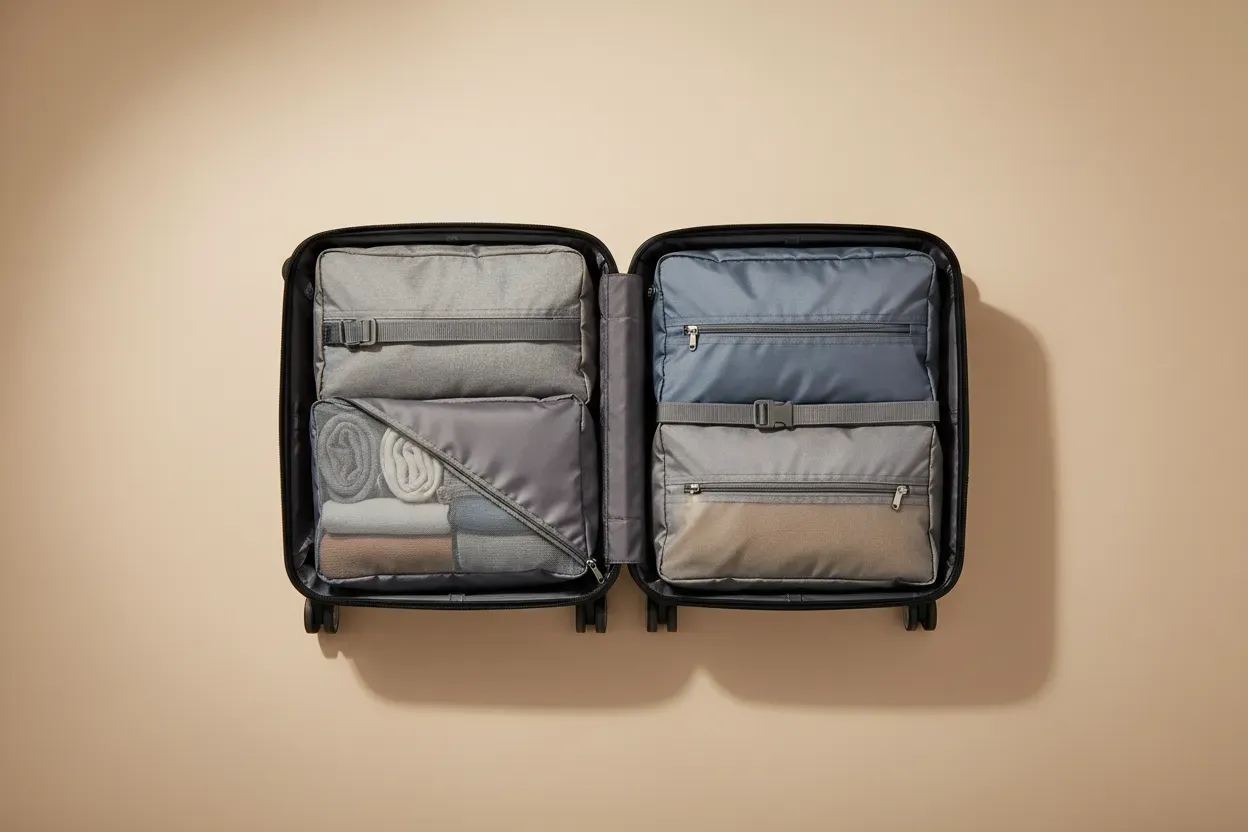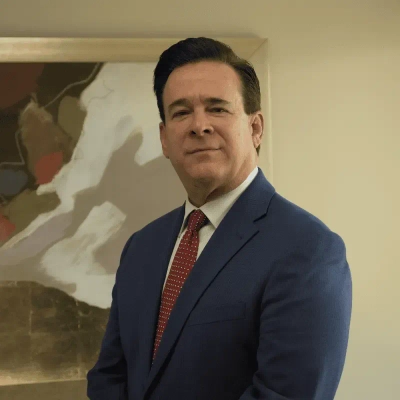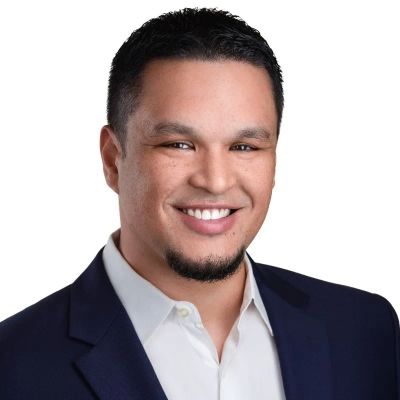How to Avoid Lifestyle Inflation: 15 Strategies from Experts
Financial experts have shared 15 practical strategies to help you maintain financial discipline as your income grows. This guide presents proven methods for avoiding the common pitfall of increasing expenses whenever earnings rise. The strategies range from automating savings to implementing waiting periods for spending, all designed to build wealth rather than expand consumption.
- Implement Waiting Period Before Spending Raises
- Apply Maintenance Mindset to Financial Growth
- Treat Personal Finances Like Business Expenses
- Practice Reverse Lifestyle Inflation
- Direct Raises Toward Specific Financial Goals
- Calculate Opportunity Cost of Every Purchase
- Pay Yourself Fixed Wages Despite Business Success
- Divide Extra Income Into Three Buckets
- Increase Giving Percentage When Income Rises
- Upgrade Systems Instead of Lifestyle
- Save Half of Every Income Increase
- Automate Savings to Make Money Disappear
- Allocate New Income to Security First
- Track Expenses Like Business Metrics
- Build Accountability Through Trusted Advisors
Implement Waiting Period Before Spending Raises
One strategy I use to avoid lifestyle inflation after a raise or income increase is to act like the raise never happened, at least for the first few months. Instead of adjusting my spending right away, I continue living on my previous budget and redirect the additional income into a separate savings account or investment. This creates a natural pause that gives me time to reflect on how I actually want to use the money instead of reacting emotionally.
When I received a significant income jump a few years ago, I made a rule to wait 90 days before making any financial changes. During that time, I tracked how it felt to maintain the same spending habits. That delay helped me avoid impulse purchases and stay grounded in what I truly value. By the time the 90 days passed, I chose to use the extra funds toward paying down debt and building an emergency fund.
What I learned is that lifestyle inflation is often driven by automatic habits, not conscious choices. By creating space between income and spending, I stay in control of my financial direction and make decisions that support long-term freedom instead of short-term satisfaction. That mindset shift makes all the difference.
Apply Maintenance Mindset to Financial Growth
Running Full Tilt Auto Body since 2008 has taught me that steady growth beats flashy spending every time. When we started winning “Best in the Valley” awards consistently from 2013 onwards, the temptation was real to upgrade everything immediately.
My strategy is the “maintenance mindset” – I treat personal finances like I treat car detailing. Just like we recommend detailing every 3-6 months to prevent costly repairs, I review my budget quarterly and “maintain” my current lifestyle rather than inflating it. When our revenue jumped after those Daily Hampshire Gazette wins in 2014-2015, I kept driving the same truck and banking the difference.
The key is thinking like a collision repair – fix what’s broken first, then protect what’s working. I still park in shaded areas and avoid harsh conditions with my spending, just like the maintenance tips we give customers. When you get a raise, treat it like applying protective coating – it’s there to shield you from future financial damage, not to make everything shinier right now.
This approach helped us expand from Easthampton to West Hatfield without overleveraging. We invested in better equipment and technology instead of fancy office furniture, which actually grew the business rather than just making us feel successful.

Treat Personal Finances Like Business Expenses
Running my own business taught me that just because revenue goes up doesn’t mean expenses should. When I had one of my best months, I almost convinced myself I deserved a bigger apartment, but I stopped and asked how that decision would look if it were a business expense. That pause helped me redirect the extra cash toward building an emergency fund, which later gave me a buffer during a quieter season. I’ve found that keeping my lifestyle constant while the business grows makes me feel more secure. My suggestion is to put new income into things that strengthen your foundation instead of adding new obligations.

Practice Reverse Lifestyle Inflation
I learned this lesson the hard way through personal experience. A few years ago I made the conscious decision to downsize my entire lifestyle – sold my Scottsdale house, left my expensive office for an executive suite, and traded my Cadillac for a Jeep. That single decision put $48,000 back in my pocket annually.
My strategy now is what I call “reverse lifestyle inflation.” When my law firm income increases, I actually look for ways to cut expenses rather than increase them. I found that my fancy car never brought me a single client – it just made me feel psychologically successful while draining my bank account.
The key is recognizing that most lifestyle upgrades are about impressing others, not improving your actual quality of life. After 25 years practicing law, I’ve seen wealthy families lose everything because they couldn’t control their spending habits. I fire housekeepers instead of hiring more, and I teach my teenage kids to do their own laundry and earn their gas money.
What really changed my perspective was realizing I was turning into a millennial at age 50. My kids don’t care about accumulating stuff – they value experiences and simplicity. Now when income goes up, I focus on creating memories with family rather than buying things we’ll eventually donate or throw away.

Direct Raises Toward Specific Financial Goals
One thing that has helped me avoid lifestyle inflation is tying any raise or bonus directly to a tangible goal, rather than my day-to-day spending. For example, when our company reached a growth milestone a few years ago, I decided that every extra dollar from that year would go toward paying off my truck early. Having a specific target made it easier to say no to unnecessary upgrades or impulse buys. It turned that raise into long-term breathing room instead of short-term comfort.
I also keep my personal budget visible—literally on a whiteboard in my office. Seeing the numbers every day reminds me what “enough” looks like. It sounds small, but having that visual check keeps me grounded. It’s a simple way to remember that stability feels a lot better than new gadgets or bigger payments.

Calculate Opportunity Cost of Every Purchase
One strategy I rely on is calculating the opportunity cost of every purchase. For example, instead of buying a new truck when I got a raise, I compared that money to how many rental units I could acquire and the cash flow they might generate. That exercise made the purchase feel more expensive, even though I could technically afford it. I recommend this approach because it makes you think long-term and keeps your focus on building assets instead of upgrading spending habits.
Pay Yourself Fixed Wages Despite Business Success
I don’t think about “lifestyle inflation.” My business is a trade, and a good year means a good year for the business, not just for me. The one strategy I use to avoid a “raise” in my spending is a simple, hands-on one: I keep my personal and business finances completely separate.
My approach is straightforward. All the money the business makes goes into the business bank account. I don’t just take all the money and start spending it. I pay myself a simple, honest wage that is the same every week. Any extra money that the business makes stays in the business for a slow season or for a new piece of equipment. I’m a person who is committed to a simple, hands-on solution.
The result of that is that my personal spending habits are the same, no matter how good the business is doing. My family and I live on a budget that is a reflection of my simple, honest wage. The extra money that the business makes is a safety net for a tough time. It’s a way of protecting my family and my business from a simple, human problem.
My advice to any business owner is to stop looking for a corporate “solution” to your problems. The best way to “avoid lifestyle inflation” is to be a person who is committed to a simple, hands-on solution. The best “strategy” is a simple, human one. The best way to build a great business is to be a person who is in control of his own finances.
Divide Extra Income Into Three Buckets
After handling roughly 40,000 injury cases since 1984, I’ve seen how quickly financial windfalls can disappear if you’re not disciplined. My strategy is the “settlement approach” – when I get extra income, I immediately allocate it into three buckets before I can even think about spending it.
First bucket gets 50% and goes straight into what I call “case reserves” – my emergency fund and long-term investments. Just like we advise clients to resist quick settlement offers that seem appealing, I resist the urge to spend raises immediately. The remaining 50% gets split between current needs (25%) and one meaningful upgrade (25%).
When our firm started securing those seven and eight-figure verdicts, the temptation was huge to upgrade everything. Instead, I kept the same modest office setup and funneled extra revenue into better legal technology and case investigation tools. This actually generated more income because we could handle complex cases more effectively.
The key insight from personal injury work is that people who suffer sudden financial trauma usually had no buffer. I treat every raise like building that buffer first, then living off yesterday’s income while tomorrow’s income works for me.

Increase Giving Percentage When Income Rises
After 30+ years in ministry leadership and growing Grace Church from a small congregation to 17,000 people across eight campuses, I’ve learned that every financial increase is actually a stewardship test. My strategy is what I call “percentage anchoring” – when income goes up, I immediately increase my giving percentage before I even see that money in my regular budget.
Here’s the specific example: When Grace Church hit major growth milestones and my compensation increased, I would bump my tithing from 10% to 12%, then 15%, treating that extra income as if it never existed for lifestyle purposes. I also automatically increased retirement contributions by the same percentage as the raise. This creates what I call “holy friction” – making it harder to spend more because the money is already committed to eternal purposes.
The psychological trick is that generosity actually rewires your relationship with money. When you give first, you naturally become more intentional with what’s left rather than more careless. I’ve watched this principle work not just in my own life, but with hundreds of church members I’ve counseled through financial decisions over the decades.
At Momentum Ministry Partners, we teach this concept to young Christian entrepreneurs – treat income increases like they’re temporary bonuses for building God’s kingdom rather than permanent lifestyle upgrades. Your future self will thank you when unexpected challenges hit.

Upgrade Systems Instead of Lifestyle
When my income goes up, I don’t upgrade my lifestyle, but I upgrade my systems.
Instead of buying something new, I redirect that extra money into automating more of my life: better bookkeeping, scheduled investments, even meal prep services that free up time. The goal is to turn new income into structure, not stuff.
It’s a mindset shift. I see each raise as permission to simplify rather than accumulate. Because once your operations run smoother, you naturally spend less on impulse and stress-driven decisions.
My take is to use raises to buy back mental bandwidth. The peace of mind compounds faster than any gadget or luxury ever will.

Save Half of Every Income Increase
When Cafely began to gain traction, I’ll admit, the urge to “upgrade” was enormous. A nicer office, nicer equipment, maybe a treat for the long nights? But I’ve also seen how easy it is for lifestyle inflation to creep in and swallow all that you worked so hard to have. So I made a deal with myself: each time my income from Cafely increased, I would only allow myself to enjoy half of it. The rest would go to savings or back into the business before I could get used to it!
Sounds simple, but it has been grounding. I am still living with the same ideas I had when Cafely was still an idea: budget-wise thinking and spending wisely, and watching what is really worthwhile. Avoiding lifestyle inflation is not so much a restriction as continued contact with that which I consider to be the reason for my beginning, which was freedom, purpose, and building something that lasts.

Automate Savings to Make Money Disappear
One strategy I use to avoid lifestyle inflation when I receive a raise or increase in income is to automate my savings by setting up automatic transfers to a savings or investment account as soon as the extra money arrives. This way, I treat the raise like it does not exist for my everyday spending because the money is already allocated toward building financial security. Maintaining my current spending habits becomes easier because I do not have the temptation to spend what I never really see in my checking account. I also keep a detailed budget that reflects my essential expenses and helps me stay aware of my financial goals. By regularly reviewing my spending and reminding myself of why I prioritize saving, I resist the urge to increase my lifestyle unnecessarily. This combination of automation and mindfulness keeps my spending habits steady despite earning more income.

Allocate New Income to Security First
The strategy that has been most effective is treating each increase in income as an opportunity to expand long-term security rather than short-term comfort. Whenever revenue grew through new contracts or larger awards, a fixed percentage was directed immediately into reserves and professional development funds before adjusting any operating expenses. By formalizing that allocation, the additional income never felt like disposable spending money.
Maintaining existing habits became easier because budgets for daily operations and personal expenses remained unchanged. Over time, this practice created a financial buffer that allowed for strategic hires and technology upgrades without debt. The discipline of redirecting growth into stability rather than lifestyle upgrades has proven far more valuable than incremental comforts could have offered.

Track Expenses Like Business Metrics
For me, the best strategy has been applying SaaS-style KPIs to my personal expenses. Just as we measure user retention and churn at Tutorbase, I track key categories like dining out or subscriptions with the same rigor. When my income increased, I forced myself to keep those ‘metrics’ flat and pushed the gains into savings and product improvements. I’ve lost count of the times this system rescued me from unnecessary upgrades when the temptation was strong. Treating your budget like a startup dashboard keeps things grounded.

Build Accountability Through Trusted Advisors
For me, the key is building accountability through others, similar to how I rely on contractors and partners in real estate deals to review decisions with a clear head. I’ve asked a trusted advisor to look over my bigger purchases, and just knowing I’ll explain it to someone makes me pause. Time after time, when lifestyle creep pops up, that check-in routine has my back. I also like setting caps on certain categories, like dining out, almost the same way we set limits on rehab costs in a property. It helps me maintain steady habits, no matter how income shifts.
